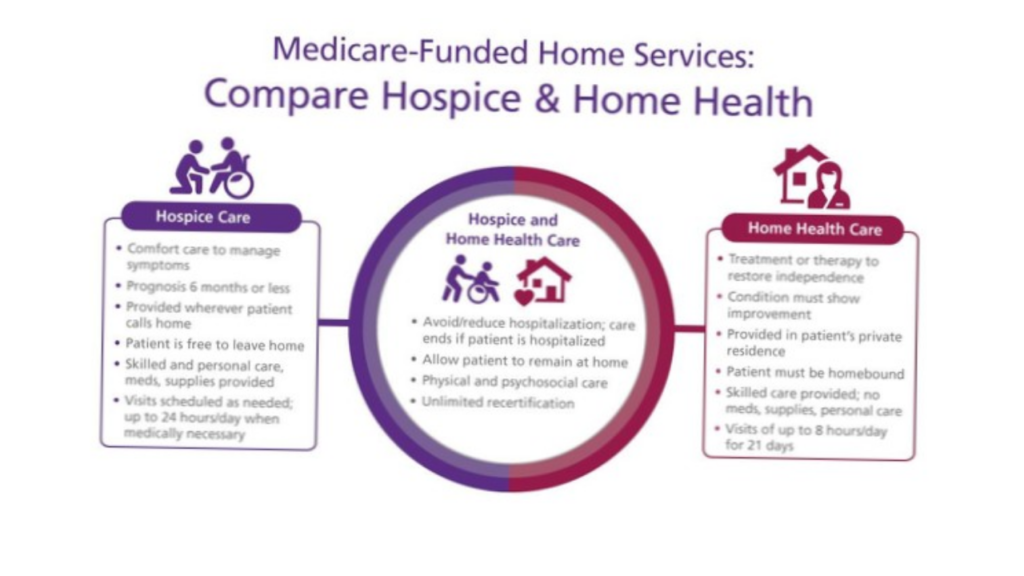Even though hospice and home health care are quite similar in some ways, they both serve a unique group of patients with different challenges and objectives than the other group of patients. Patients may get hospice and home health care services. For example, regardless of where they reside in the world. They provided patient hospice care to patients. Who are in the last stages of their illness and for whom curative medical measures are no longer effective or desirable. Health care provided in the patient’s home assists them in their recovery after an accident or sickness and enhances. Their ability to do their daily activities.
The next section contains more information on the distinctions between home health and hospice care.
Hospice and Home Health
It provided regular hospice care wherever the patient feels most comfortable, whether in a private apartment. Throughout the day, a family caregiver (or a friend). An interdisciplinary team of hospice professionals (a nursing assistant, physician, chaplain/social worker/volunteer, and grief counselor, with additional specialists stepping in as needed) cares for the patient’s basic needs. End-of-life care is the area of expertise for the entire group.
Three additional levels of care and traditional hospice care in the patient’s home are specified under the Medicare Hospice Benefit. The term intensive comfort care at VITAS refers to the 24-hour care provided by a nurse. Hospice assistant to treat acute symptom flare-ups by Medicare standards. Using inpatient hospice care or a hospital bed may recommend. When the patient’s symptoms have been controlled and the patient can return home.
Taking care of one’s health in one’s residence
However, The home health care industry serves patients who need intermittent skilled nursing care, physical therapy, speech-language pathology treatments. It continued occupational therapies delivered in the comfort of their own homes by qualified experts. It may provide you with home health care services to aid you in managing your condition. If a patient is not housebound, Medicare does not cover the cost of home health care services for that patient. The time a patient receives home health services. You may govern by the goals and objectives established for their care.
Hospice and Home Health Patients and Treatment
Even hospice patients usually have no out-of-pocket payments because of their illness due to their treatment. However, You may require them to pay for medications, supplies, and equipment. If they are getting in-home health care. While the family members of home health patients get caregiver education and training. They do not have access to the extra layers of psychological support that hospice carers receive. Patients receiving home health care may eventually need hospice care as their illnesses advance. Although, Consult with your doctor to discover whether or not you are eligible for hospice services.
Also Read: What is the CPT Code for home health?

